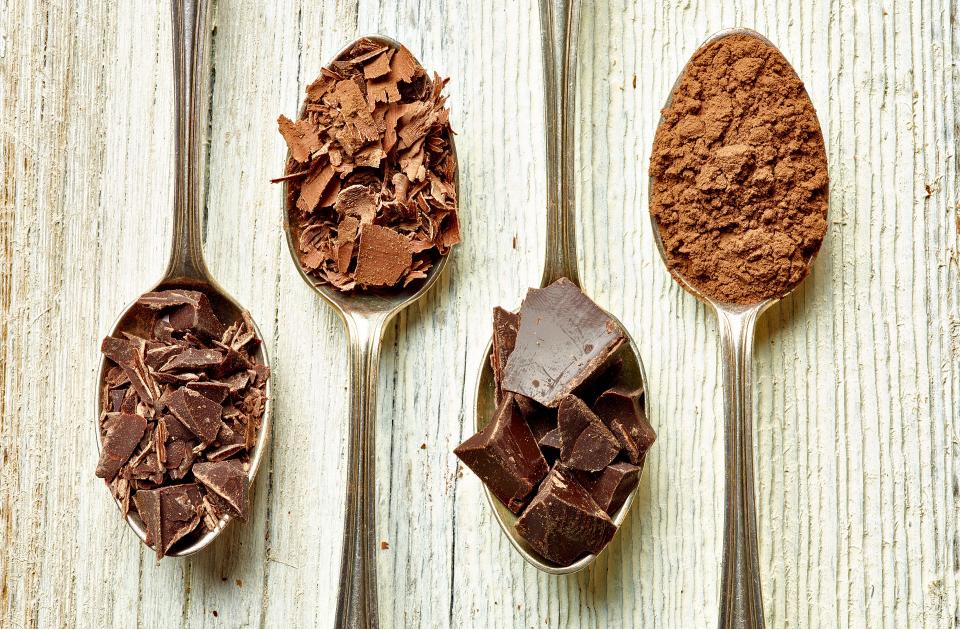
Le cacao captive le monde depuis des centaines d’années. Sous la forme de chocolat, il occupe une place importante dans la cuisine moderne.
Le cacao serait une source d’antioxydants naturels et des recherches ont montré son potentiel dans la régulation immunitaire, la réduction des inflammations et le contrôle du diabète. Elle est également essentielle dans les produits et cosmétiques qui favorisent la croissance des cheveux et la réparation de la peau.
Selon une étude réalisée par le Centre pour la promotion des importations en provenance des pays en développement (CBI), l’Organisation internationale du cacao a publié une liste des 23 pays producteurs et de la part de leurs exportations qui peuvent être classées comme cacao fin ou aromatique. La définition ou la classification du cacao fin ou aromatique reste assez ambiguë, mais il est généralement admis qu’il s’agit d’un fruit qui comprend des notes d’herbes, de fleurs et de bois. Sur les 23 pays répertoriés, sept sont des États du CARIFOUM.

Cacao heeft de wereld al honderden jaren in zijn ban als een groot onderdeel van de moderne keuken in de vorm van chocolade.
Cacao is een bron van natuurlijke antioxidanten en onderzoek toont aan dat het kan bijdragen tot immuunregulering, vermindering van ontstekingen en diabetescontrole. Het is ook essentieel in producten en cosmetica die haargroei en huidherstel bevorderen.
Volgens een studie van het Centrum ter bevordering van de invoer uit ontwikkelingslanden (CBI) heeft de Internationale Cacao-organisatie een lijst gepubliceerd van de 23 producerende landen en het deel van hun export dat als edelcacao of smaakcacao kan worden aangemerkt. De definitie of classificatie van fijne of smaakvolle cacao blijft nogal dubbelzinnig, maar over het algemeen wordt aangenomen dat het gaat om fruit met kruiden-, bloemen- en houttoetsen. Van de 23 genoemde landen zijn er zeven CARIFOUM-staten.

Cacao heeft de wereld al honderden jaren in zijn ban als een groot onderdeel van de moderne keuken in de vorm van chocolade.
Cacao is een bron van natuurlijke antioxidanten en onderzoek toont aan dat het kan bijdragen tot immuunregulering, vermindering van ontstekingen en diabetescontrole. Het is ook essentieel in producten en cosmetica die haargroei en huidherstel bevorderen.
Volgens een studie van het Centrum ter bevordering van de invoer uit ontwikkelingslanden (CBI) heeft de Internationale Cacao-organisatie een lijst gepubliceerd van de 23 producerende landen en het deel van hun export dat als edelcacao of smaakcacao kan worden aangemerkt. De definitie of classificatie van fijne of smaakvolle cacao blijft nogal dubbelzinnig, maar over het algemeen wordt aangenomen dat het gaat om fruit met kruiden-, bloemen- en houttoetsen. Van de 23 genoemde landen zijn er zeven CARIFOUM-staten.
Data shows that export volumes for sauces and preparations from the Caribbean are not consistent.
Among the top exporters of sauces and condiments are Trinidad and Tobago, Jamaica and the Dominican Republic. Exports from all the other Caribbean states fluctuate significantly, which may be due to supply issues like sourcing of consistent raw materials or technical barriers to trade like labelling standards.
The sauces and condiments market was valued at USD 142.5 billion in 2018 with five-year trends indicating growth to USD 181 billion by 2023. The industry is estimated to have an untapped market potential of USD 7.5 billion. Major target markets are the United States, United Kingdom, and Canada. These are also the markets with greatest potential for Caribbean exports of preparations for sauces and prepared sauces.
Coffee has multifunctional properties as a food additive and nutraceutical. As a nutraceutical, coffee has anti-inflammatory, antioxidant, anti-dyslipidemic and anti-obesity properties.
Although most of the world’s coffee is grown in South and Central America, some islands in the Caribbean possess optimal conditions for the cultivation of coffee beans. In the case of Jamaica, these conditions are responsible for the smoothness of the Jamaican Blue Moutain Coffee, which is the region’s leading coffee export. The soil composition and the high mountain altitudes are responsible for the production of a mild, smooth bean with a strong aroma. These beans are heavily demanded and can sell for USD 50-60 per pound.
In 2019, the global coffee market has estimated to be valued at USD 102.15 billion, with projections to increase by 6.2% to USD 155.64 billion. Globally, the major markets for coffee are the United States, Germany, and Italy. The markets with greatest potential for Caribbean’s exports of coffee that is not roasted, nor decaffeinated are Germany, the United States and the United Kingdom.
Agro-Processing Sector Brief
Al generaties lang, van de oude beschavingen tot de moderne tijd, wordt natuurhoning algemeen aanvaard als een voedingsmiddel met een geneeskrachtige werking.
Door de verschuiving naar gezondere alternatieven geven de consumenten in het algemeen de voorkeur aan caloriearme, natuurlijke en gezonde zoetstoffen. There is greater focus on healthier alternatives to refined sugar, such as raw cane sugar, honey and palm sugar amongst others.
Net als bij aloë vera en andere natuurlijke producten heeft de groeiende tendens van consumenten die gezondere alternatieven eisen, de voordelen van het gebruik van honing als zoetstof onder de aandacht gebracht. Regelmatige consumptie van honing wordt in vergelijking met kunstmatige zoetstoffen geassocieerd met hoge energieniveaus die verder zorgen voor voeding, verhoogde metabolische activiteit, groei en gezond leven.
De wereldmarktwaarde van honing wordt in 2020 geraamd op 9,21 miljard dollar en zal de komende vijf jaar naar verwachting met 11,6% groeien tot 14,2 miljard dollar. The International Trade Centre’s Export Potential Map indicates that the markets with greatest potential for Caribbean honey exports are Germany, Spain and China.
Lees meer over de exportmogelijkheden voor de agro-industrie.
Agro-Processing Sector Brief
Global growth in 2021 is projected to be more robust than previously envisioned. Rapid vaccination progress has contributed to forecast upgrades in many countries; however, this is concentrated primarily in advanced economies.
For many EMDEs, renewed COVID-19 surges and limited vaccination have contributed to downward revisions to growth.
